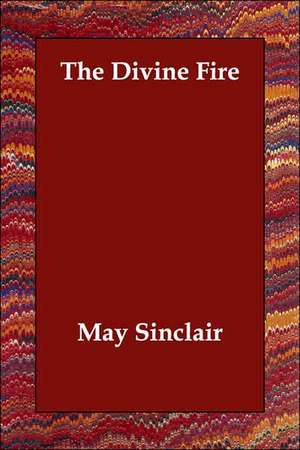The Divine Fire
Autor May Sinclairen Limba Engleză Paperback – 31 oct 2006
The poet dropped his aitches, for one thing. And there was the matter of that actress he doted on -- low-class Yet cousin Lucia kept asking about him . . . and Horace did think maybe, just maybe, Rickman was a genius. But could Horace introduce Rickman to his club? He yearned to -- and yet, as he told Lucia, "The burnt critic dreads the divine fire "
In this witty 1904 novel of literary and social manners and foibles, May Sinclair demonstrates all the wit, perception and style that made her one of the most respected -- and most read -- novelists of her time.
| Toate formatele și edițiile | Preț | Express |
|---|---|---|
| Paperback (2) | 193.13 lei 38-44 zile | |
| Echo Library – 31 oct 2006 | 193.13 lei 38-44 zile | |
| Camp Press – 8 oct 2007 | 281.84 lei 38-44 zile | |
| Hardback (1) | 331.55 lei 6-8 săpt. | |
| Aegypan Press – 30 noi 2007 | 331.55 lei 6-8 săpt. |
Preț: 193.13 lei
Nou
Puncte Express: 290
Preț estimativ în valută:
36.95€ • 38.59$ • 30.52£
36.95€ • 38.59$ • 30.52£
Carte tipărită la comandă
Livrare economică 11-17 aprilie
Preluare comenzi: 021 569.72.76
Specificații
ISBN-13: 9781406808070
ISBN-10: 1406808075
Pagini: 464
Dimensiuni: 152 x 229 x 26 mm
Greutate: 0.68 kg
Editura: Echo Library
ISBN-10: 1406808075
Pagini: 464
Dimensiuni: 152 x 229 x 26 mm
Greutate: 0.68 kg
Editura: Echo Library
Notă biografică
May Sinclair was the pseudonym of Mary Amelia St. Clair (1863 - 1946), a popular British writer who wrote about two dozen novels, short stories and poetry. She was an active suffragist and member of the Woman Writers' Suffrage League. May Sinclair was also a significant critic in the area of modernist poetry and prose and she is attributed with first using the term stream of consciousness in a literary context, when reviewing the first volumes of Dorothy Richardson's novel sequence Pilgrimage (1915-67), in The Egoist, April 1918. From 1896 Sinclair wrote professionally to support herself and her mother, who died in 1901. An active feminist, Sinclair treated a number of themes relating to the position of women and marriage. Her works sold well in the United States. Around 1913, at the Medico-Psychological Clinic in London, she became interested in psychoanalytic thought and introduced matter related to Sigmund Freud's teaching in her novels. In 1914, she volunteered to join the Munro Ambulance Corps, a charitable organization (which included Lady Dorothie Feilding, Elsie Knocker and Mairi Chisholm) that aided wounded Belgian soldiers on the Western Front in Flanders. She was sent home after only a few weeks at the front. Her 1913 novel The Combined Maze, the story of a London clerk and the two women he loves, was highly praised by critics, including George Orwell, while Agatha Christie considered it one of the greatest English novels of its time.
